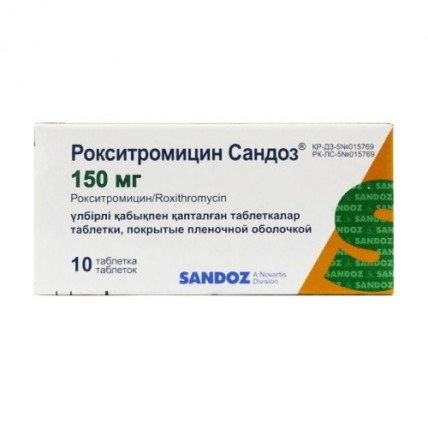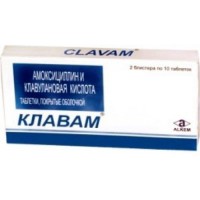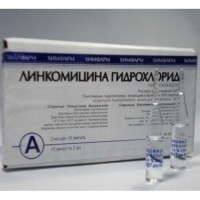Roxithromycin 150 mg, 10 tablets
- $15.00
What is Roxithromycin?
Roxithromycin is a macrolide antibiotic used to treat various bacterial infections. This medication works by inhibiting the growth of bacteria, making it effective against infections of the respiratory tract, skin, soft tissues, and certain types of urinary tract infections. Available in tablet form, Roxithromycin is typically prescribed in 150 mg doses.
How Does Roxithromycin Work?
Roxithromycin interferes with the bacteria's ability to produce essential proteins, which are necessary for their growth and replication. By doing so, it effectively halts the spread of infection, allowing the immune system to eliminate the remaining bacteria.
What Infections Can Roxithromycin Treat?
Upper Respiratory Tract Infections
Roxithromycin is commonly prescribed for upper respiratory tract infections, such as:
- Acute pharyngitis
- Tonsillitis
- Sinusitis
Lower Respiratory Tract Infections
This antibiotic is also effective for lower respiratory tract infections, including:
- Acute bronchitis
- Exacerbations of chronic bronchitis
- Community-acquired pneumonia
Skin and Soft Tissue Infections
Roxithromycin can treat various skin and soft tissue infections, helping to reduce inflammation and clear the infection.
Non-Gonococcal Urethritis
For certain types of urinary tract infections, such as non-gonococcal urethritis, Roxithromycin is a reliable treatment option.
Is Roxithromycin Safe for Children?
Roxithromycin can be used in children for specific infections, such as:
- Acute pharyngitis
- Acute tonsillitis
- Impetigo
However, it is not recommended for children weighing less than 40 kg.
What Precautions Should Be Taken Before Using Roxithromycin?
Allergies
Do not use Roxithromycin if you have a known allergy to macrolide antibiotics or any of the inactive ingredients in the tablet.
Drug Interactions
Roxithromycin can interact with several medications, including:
- Ergotamine and its derivatives
- Colchicine
- Medications that prolong the QT interval, such as terfenadine, astemizole, cisapride, and pimozide
Medical Conditions
Patients with certain medical conditions should use Roxithromycin with caution. These include:
- Uncorrected hypokalemia or hypomagnesemia
- Significant bradycardia
- Symptomatic heart failure
- History of ventricular arrhythmias
Can Pregnant or Breastfeeding Women Take Roxithromycin?
Pregnancy
There is limited data on the safety of Roxithromycin during pregnancy. It is generally not recommended unless absolutely necessary and prescribed by a healthcare provider.
Breastfeeding
Roxithromycin is excreted in small amounts in breast milk. Breastfeeding should be discontinued during treatment with this antibiotic.
How Should Roxithromycin Be Stored?
Roxithromycin should be stored at temperatures not exceeding 25°C (77°F) and kept out of reach of children. Always check the expiration date and do not use the medication beyond this date.
What Are the Possible Side Effects of Roxithromycin?
Common side effects of Roxithromycin include:
- Headache
- Dizziness
- Nausea
- Abdominal pain
- Diarrhea
- Skin redness
Less common but more severe side effects can include:
- Eosinophilia
- Allergic reactions such as urticaria or angioedema
- Severe skin reactions like Stevens-Johnson syndrome
- Liver function abnormalities
If you experience any severe side effects, seek medical attention immediately.
How is Roxithromycin Administered?
The usual dosage for adults and children over 40 kg is 150 mg taken twice daily, 12 hours apart. The tablets should be taken 15 minutes before meals, swallowed whole with a sufficient amount of water. The treatment duration is typically 5 to 10 days, depending on the infection's severity and the patient's response to the medication.
What Should You Do in Case of Overdose?
Symptoms of overdose may include headache, dizziness, nausea, vomiting, and diarrhea. If an overdose is suspected, seek medical help immediately. Treatment usually involves gastric lavage and symptomatic management to support vital functions.







